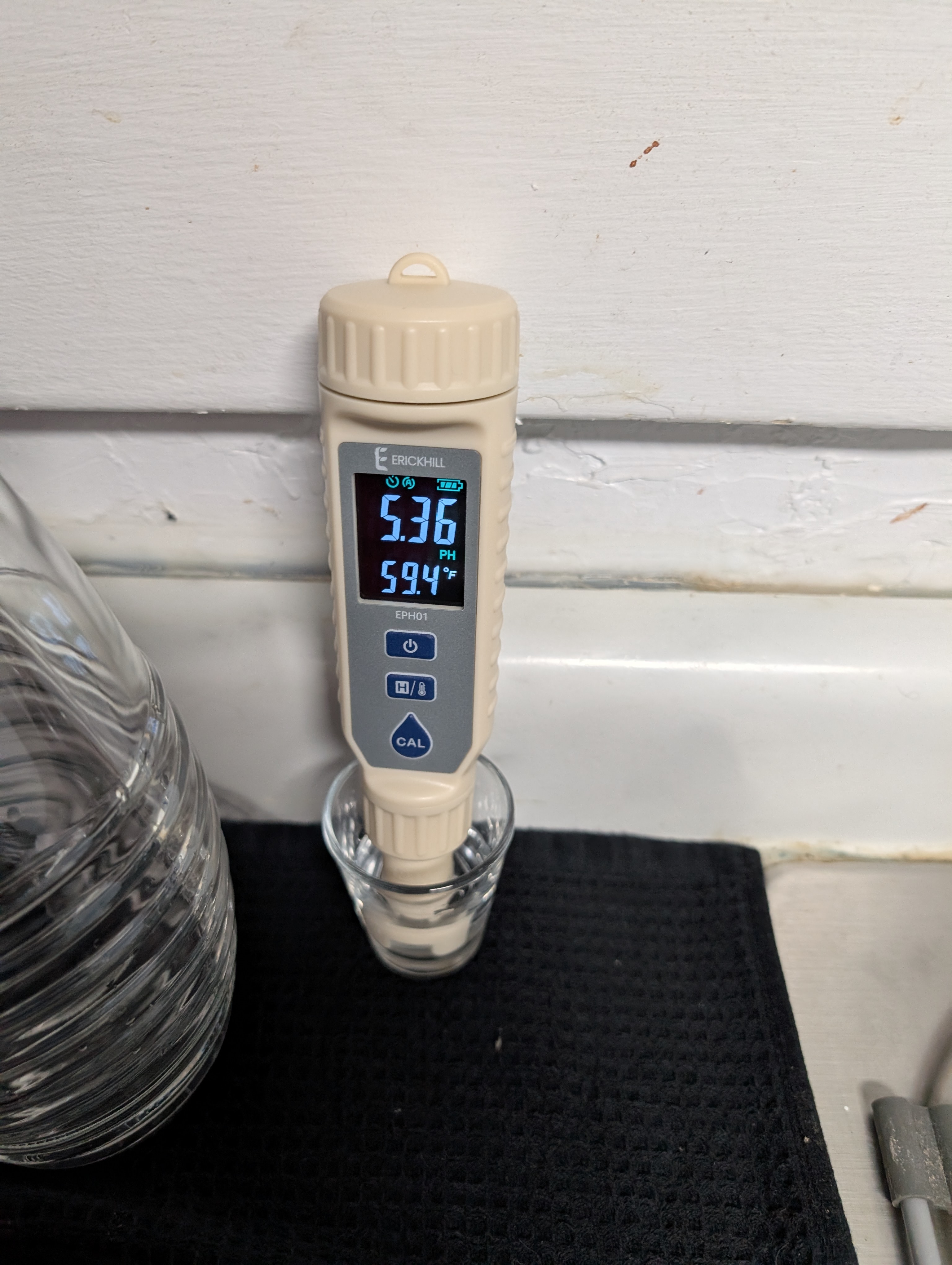Hi, everyone
I have been trying to accurately get my pH around 5.3 for most of my brews. I bought a Erickhill pH meter and bought some lactic acid 88% to play around with. Just one drop of lactic acid brings my gallon of RO water from 6.17ph to 5.36ph. I have done several gallon test which have come up with varying pH because of the size of the droplet. So next step is to use a eye dropper to get consistent smaller drops to get my desired range of pH. Note my RO Water pH has risen, which probably means I need to change the filters.
What was so confusing was reading about people using several grams of this stuff in small batch brews. I am testing with 1 gallon batches and for a week I have been thinking my tool wasn't working properly.
A couple odd things. Calibration takes about 7 minutes. It took Erickhill tool, 2 hours to get my house tap water of 8.05ph. This device is measures pretty quickly to 3-7ph range. I usually let the device sit in the solution I am measuring for 10minutes. Give it a couple of stairs in the solution as well. I will turn it off and on several times during the 10 minutes.
It seems very accurate.
Has anyone else experienced this kind of time delay to get a reading for pH? Should I leave it in the solution for certain amount of time? Anyone else using extremely small amount of lactic acid to get desired pH?
Thanks everyone, appreciate any wisdom.
Picture below are for fun.

I have been trying to accurately get my pH around 5.3 for most of my brews. I bought a Erickhill pH meter and bought some lactic acid 88% to play around with. Just one drop of lactic acid brings my gallon of RO water from 6.17ph to 5.36ph. I have done several gallon test which have come up with varying pH because of the size of the droplet. So next step is to use a eye dropper to get consistent smaller drops to get my desired range of pH. Note my RO Water pH has risen, which probably means I need to change the filters.
What was so confusing was reading about people using several grams of this stuff in small batch brews. I am testing with 1 gallon batches and for a week I have been thinking my tool wasn't working properly.
A couple odd things. Calibration takes about 7 minutes. It took Erickhill tool, 2 hours to get my house tap water of 8.05ph. This device is measures pretty quickly to 3-7ph range. I usually let the device sit in the solution I am measuring for 10minutes. Give it a couple of stairs in the solution as well. I will turn it off and on several times during the 10 minutes.
It seems very accurate.
Has anyone else experienced this kind of time delay to get a reading for pH? Should I leave it in the solution for certain amount of time? Anyone else using extremely small amount of lactic acid to get desired pH?
Thanks everyone, appreciate any wisdom.
Picture below are for fun.



















![Craft A Brew - Safale BE-256 Yeast - Fermentis - Belgian Ale Dry Yeast - For Belgian & Strong Ales - Ingredients for Home Brewing - Beer Making Supplies - [3 Pack]](https://m.media-amazon.com/images/I/51bcKEwQmWL._SL500_.jpg)



















